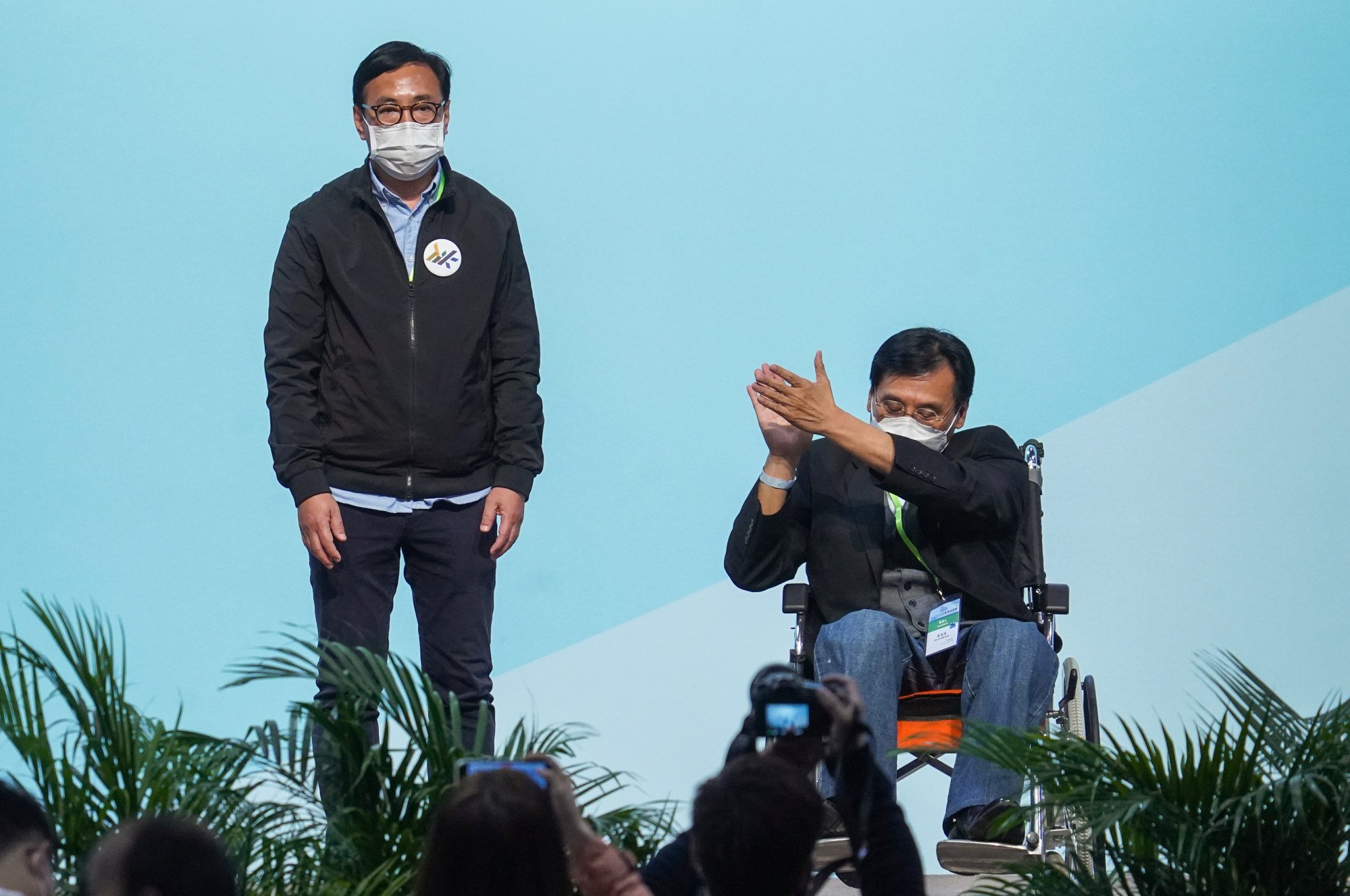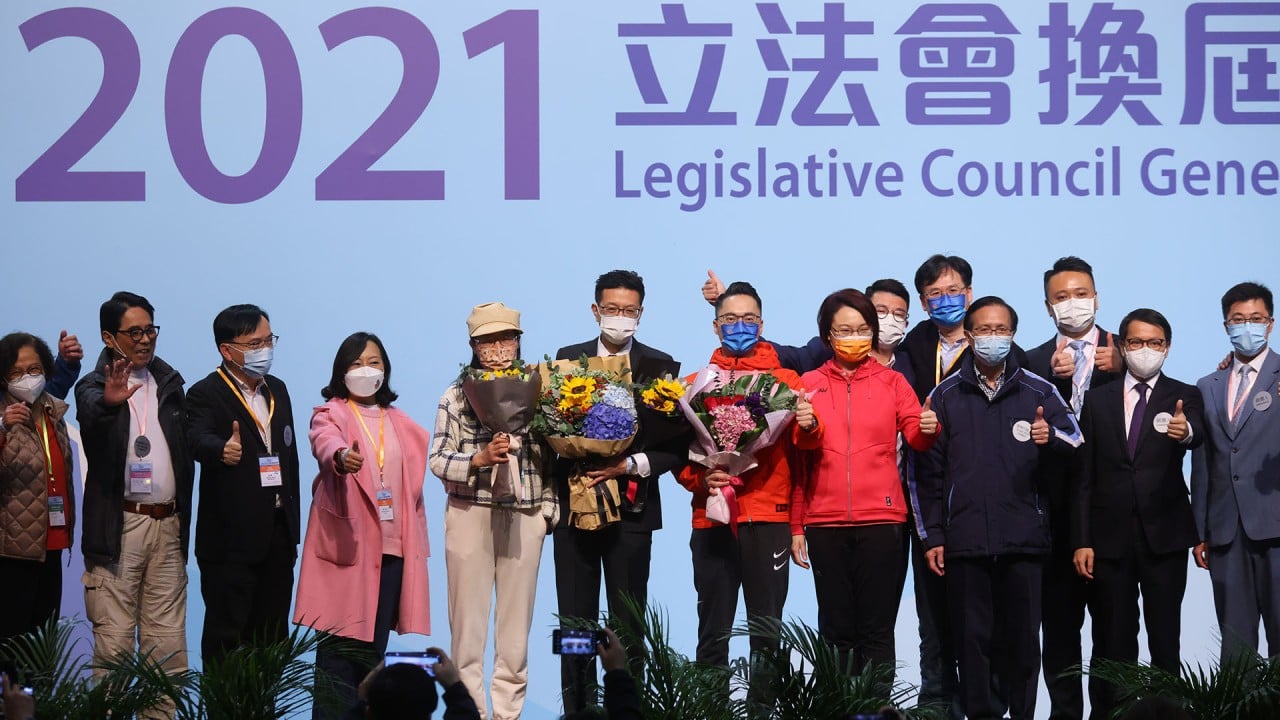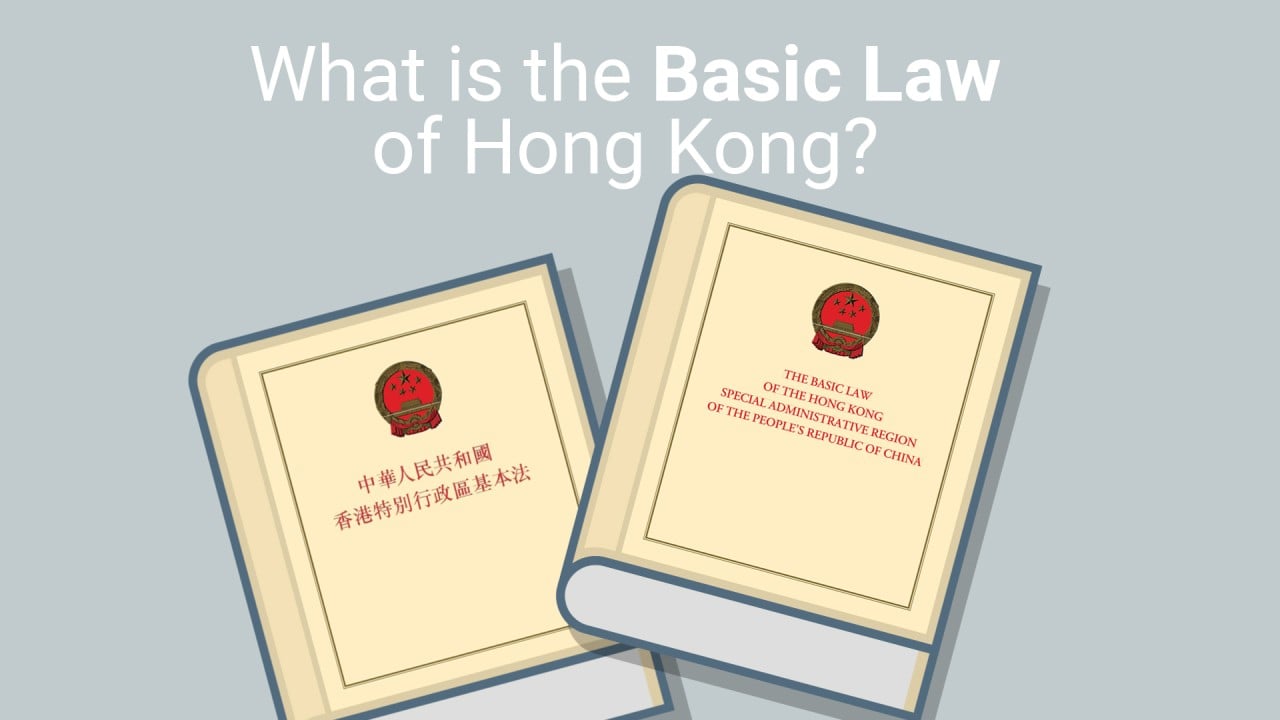
Token gesture or genuine resolve? Beijing’s fresh vow to pursue universal suffrage in Hong Kong sparks debate
- Only non-establishment candidate to win Legco seat in Sunday’s poll among those saying Beijing white paper is positive step towards full democracy
- Central government this week renewed its pledge to strive for the election of Hong Kong leader, lawmakers by universal suffrage
Tik Chi-yuen, who beat his rivals in the social welfare functional constituency, pledged to initiate a motion in the legislature calling for a relaunch of constitutional reform within 100 days of him being sworn-in as lawmaker on January 3.
Beijing defends ‘Hong Kong democracy’, cites universal suffrage goal
Cheung, a political scientist by profession and a former vice-chairman of the opposition Democratic Party, said Beijing should be more comfortable with allowing Hongkongers to elect the chief executive and all lawmakers by universal suffrage in future after the introduction of a vetting mechanism to ensure all candidates in elections were “patriots”.
A total of 153 Legco hopefuls passed the Candidate Eligibility Review Committee’s vetting process and were cleared to run in Sunday’s election.
“The central government should have its mind set at ease after the overhaul of Hong Kong’s electoral system,” Cheung said in an interview with the Post on Tuesday.
“I think Beijing might feel comfortable redoing the electoral reform process after observing the operations of the newly elected legislature in the next four years.”
In the white paper, titled “Hong Kong Democratic Progress Under the Framework of One Country, Two Systems”, the central government said it was intent on developing democracy in the city in line with the realities on the ground and local characteristics.

According to Articles 45 and 68 of the Basic Law, the method for selecting the chief executive and lawmakers shall be specified “in light of the actual situation” in Hong Kong, and “in accordance with the principle of gradual and orderly progress”.
Why three new forces could emerge to give Hong Kong legislature a jolt
The two articles also stipulate the election process of all Legco members and the chief executive by universal suffrage as “the ultimate aim”, although critics have questioned Beijing’s commitment to such a goal after the 2019 protests and the ensuing political shake-up.
Under the Beijing-decreed reforms to ensure only “patriots” hold political power, the pro-establishment bloc swept all seats in Sunday’s election, except the one taken by Tik, to dominate the new 90-member legislature. The number of directly elected seats was reduced from 35 to 20. All candidates had their eligibility as “patriots” determined by a vetting committee.
The white paper defended the new electoral model as a strategy for developing “democracy with Hong Kong characteristics”.

Tik, chairman of centrist party Third Side and a former Democratic Party member, said he believed that Beijing’s white paper on the city’s democratic progress was a positive step to be welcomed.
“We think it is positive ... At least the central government has already put democracy on the agenda,” he said. “Although there could be discrepancies with Hongkongers’ opinion, at least the central government has clearly stated its stance.”
Cheung said how relations between China and Western countries evolved would be the critical factor affecting Beijing’s confidence in wanting to reactivate any electoral reform process in Hong Kong.
“Beijing would not loosen its grip if the Western bloc continues to use Hong Kong as a pawn in its diplomatic battle with China,” he said.
The professor said the framework laid down by Beijing in 2014 for electoral reform in Hong Kong would be “the most optimistic model” for electing the city’s leader by universal suffrage.
In August 2014, Beijing was prepared to let Hong Kong pick its chief executive via universal suffrage by 2017, with voters choosing between two or three candidates endorsed by a 1,200-strong nominating committee.
But Legco rejected the proposal in 2015, and Carrie Lam Cheng Yuet-ngor was selected in 2017 by the 1,200-member Election Committee.
But some newly elected lawmakers from the pro-establishment camp sounded a cautious note on reviving any electoral reform process, arguing other priorities were more pressing.
Maggie Chan Man-ki, who was returned in the Election Committee constituency, said the agendas of the government and legislature should focus on solving the city’s deep-rooted problems.
“The path to universal suffrage has been stated in the Basic Law, which states that it should proceed on the basis of the actual condition of Hong Kong,” she said.
“The public opinion now is on ... how we can tackle these deep-rooted problems in Hong Kong. This is the most important,” she added.
“Any democratic development should also lead to stability, happiness, and the ability to pursue the personal dream and prosperity of the country, backed by a conducive environment.”
Lau Siu-kai, vice-president of the semi-official Chinese Association of Hong Kong and Macau Studies, said it was too early to tell if the references in the white paper to the ultimate goal of universal suffrage were a signal that Beijing would give the green light to relaunching electoral reform.
But he suggested that Hong Kong was currently too polarised for electoral reform to be on the agenda.
“Given the low [30.2 per cent] turnout for Sunday’s election, I’m doubtful if the current social atmosphere is suitable for restarting the reform process,” he said.
Additional reporting by Nadia Lam and Chris Lau




